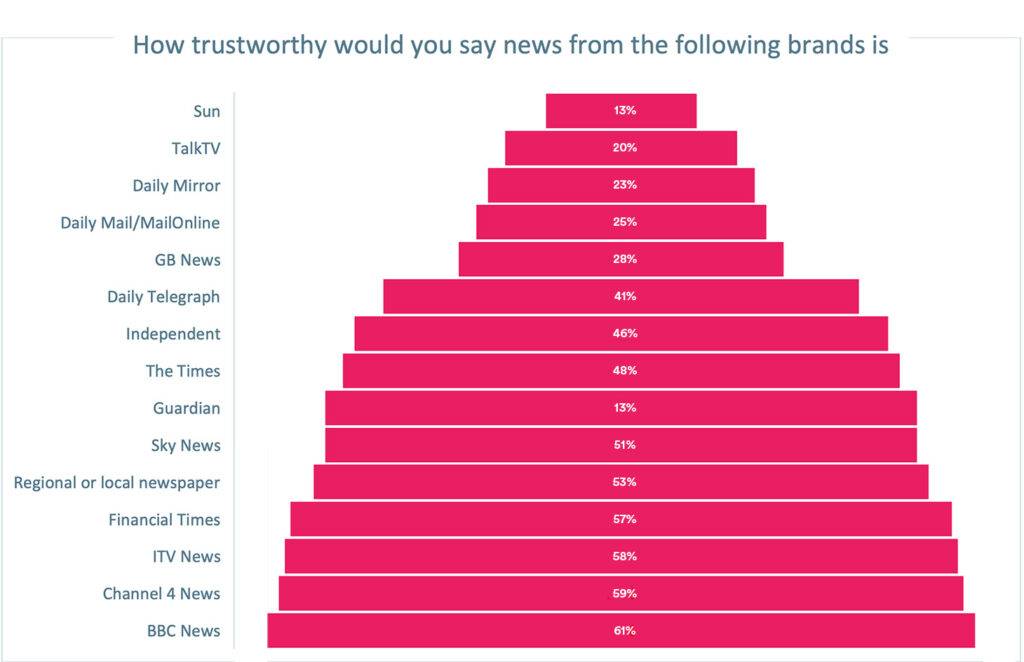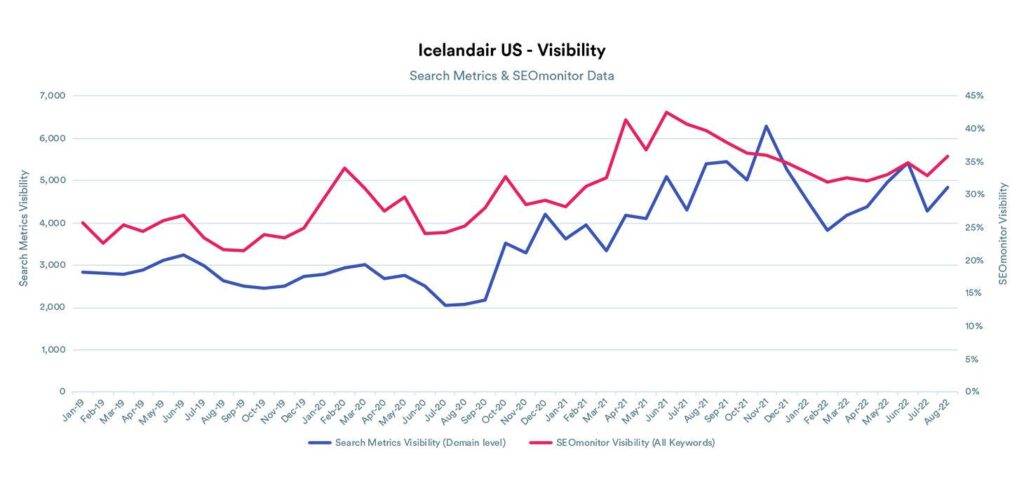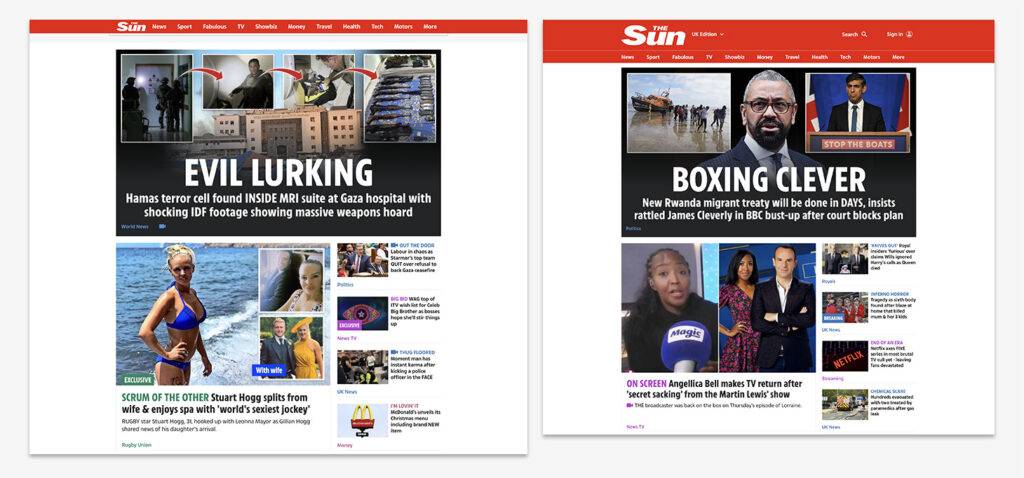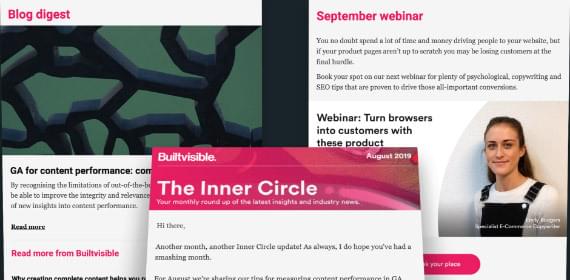British journalism is in disarray
Another year on, and still, why is the industry peddling and supporting bullshit reporting?
People continue to receive a barrage of sensationalist, misleading and manipulative “news” from leading outlets, often resulting in tragic circumstances for those in the firing line. This couldn’t be more apparent in light of the BBC presenter story that dominated the news cycle earlier in the year for almost a week and then went into an apparent media blackout. The fact you suddenly couldn’t find the story on the front page, let alone elsewhere, is very telling. Well, that and The Sun’s explicit back-peddling:

I feel tired and exhausted to be talking about the same thing as I did last year and the year before, but given the lack of progress it is clear the wider issue firmly remains and while this is so, we can’t be complacent in it.
Do reporters have souls?
This BBC presenter’s story is a motif of what I believe is a broken British journalistic system, and I feel aghast that it’s as if everyone’s forgotten about what happened to Caroline Flack after the same tabloid hounded her. Do reporters have souls? It begs the question.
While the brunt of the responsibility should sit with publications that like to bypass * the bare minimum * in ethical journalism standards (fact-checking and using reputable sources as a starter for ten), I think everyone needs to take a moment to consider the role they play in proliferating unsubstantiated allegations and consequently, supporting those publications. In response to the BBC presenter scandal, Brian Cathcart believed ‘Every editor and reporter who helped promote the Sun’s story should feel shame’. Cathcart continued on by pointing out The Sun’s questionable reporting history and pushing a valid question: why are reporters and journalists from other outlets still amplifying The Sun’s press when it’s been repeatedly called out for violating journalism standards and beyond?
This post challenges not only publications but also professionals in PR, Digital PR, Content, and Social to introspect. Why do we continue to support outlets with dubious reporting histories? Is it a lack of understanding, arbitrary targets, or a disregard for the repercussions on brand reputation? Or is it something else?
If it is something else or even something I’ve mentioned, can you please speak up. Once more, it’s rare we see people shouting about the tangible impact of scoring a link from such an outlet, and even if those numbers are shared, is it worth it in the long run? Aren’t you putting your brand’s reputation on the line by working with dubious outlets in the first place?
Consumers are paying attention to your brand’s actions
London-based independent coffee company, Grind, received backlash from its Twitter X following and beyond after finding out it had been advertising on climate-change-doubting GB News, calling into question Grind’s own sustainability values. In response, Grind quickly pulled its GB News ad spend, pushed out a statement and made a donation to WWF Climate Crisis Fund in Laurence Fox’s name, amongst other things.
Firstly, a quick hat tip to Grind for transparently addressing the problem at hand and offering clarity on its steps to correct it. But what I think is interesting is how consumers called for action following a little bit of brand hypocrisy. Grind’s followers expected more, and quite right, too – if you’re pushing certain values, then all your actions need to reflect this through and through. People care about and expect commitment to your brand’s values, and brands need to honour that to build and retain consumer trust.
Similarly, people expect and deserve to receive articles from sources they can trust. However, as we can see from Reuters Institute and the University of Oxford’s Digital News Report 2023, overall trust in UK news is trending downwards, and of those brands surveyed, it’s the tabloid press that holds up the rear in trust levels. Why is the digital marketing industry celebrating links from outlets deemed untrustworthy? It’s time to reevaluate our approach and prioritise relevance over vanity in an industry fraught with ethical dilemmas.

[Source: Reuters Institute and the University of Oxford’s Digital News Report 2023]
Ask yourself, does your approach prioritise relevance over vanity?
At Builtvisible, we have repeated examples of driving forward organic performance and, importantly, revenue for our partners by outreaching our work to outlets that offer relevant referral traffic. As a policy, we do not go after the types of tabloids that proffer dubious reporting for both ethical and performance reasons. You can read more about our practices and see an example of the impact we drive with our Icelandair case study below, which has also resulted in several industry accolades.
 [Source: +221% revenue uplift for Icelandic airline]
[Source: +221% revenue uplift for Icelandic airline]We strongly believe there is far more value in targeting a smaller handful of hyper-relevant sites you’ve probably never heard of than gunning for a well-known name that offers ‘generalised’ traffic. Moreover, the nature of those ‘bigger name’ websites means articles burn and churn at record speed, which means your brand will only have that moment of glory for a short time – is it really worth it? We don’t think so.
Image 1 – The Sun’s front page on 16th November at 07:00 versus Image 2 – The Sun’s front page on 16th November at 12:49]
The above serves to illustrate the pace at which news stories are shunted down the pile by leading outlets. Of course, that is the nature of stories breaking all the time, but consider niche publications with smaller editorial teams. Those features and stories will have prime real estate for a longer period of time (compared to nationals) by the simple fact they have smaller teams pushing through articles. Once more, it’s those smaller sites, that will funnel relevant people to your site, as opposed to the likes of tabloids that can’t really do that, but do offer a side of unethical practice and consumer distrust. It’s time to switch things up!
We’ve updated our Be Kind policy
We’ve had our Be Kind policy in place for several years and recently updated it to clarify our rubric and process for blacklisting publications. It’s a policy we put in place several years ago, spurred on by the tabloids’ treatment and coverage of Caroline Flack, and the awful outcome of that scenario. In our opinion, that was – and remains a pause for – reflection about how we work with the press.
Caveat klaxon: our policy is by no means the finished article. In fact, it’s quite the opposite; it’s a working document that needs ongoing effort and vigilance so that we can maintain a cruelty-free Digital PR offering, and that’s not easy – especially when work can be organically picked up by publications we choose not to work with directly. However, that’s a challenge we’re actively embracing.
Prior to the policy update, we’d already blacklisted leading tabloids for the simple reason of them repeatedly coming under fire by industry bodies and the public. Those tabloids remain on our blacklist, and while the principle remains the same, there’s a clearer 3-step system now in place to ensure we stay true to the policy and consider outlets of all kinds:
- Identify – through consistent monitoring of outlets and looking at reports such as IPSO’s annual report, our team works to identify potential candidates for exclusion.
- Evaluate – outlets put forward for blacklisting require tangible and relevant evidence, and this needs to be tracked and logged in an accessible location (a simple Google sheet in our case).
- Deliberate – as a team, we will discuss candidates put forward and make a final decision together.
[Source: Builtvisible’s outlet blacklist tracker]
I’ll no doubt receive some backlash from industry folk after this post is published (virtue signalling or discrediting others for working with tabloids are the usual pushbacks), but if this works to get some more people thinking about how they could be helping the proliferation of misinformation or hate, then I’m happy to take it. We could all be doing better here – especially with the advent of AI, which is yet another route to potential misinformation and a post by itself.
All of this is about being responsible with marketing efforts and ensuring we’re protecting our brand partners, well, and ideally encouraging media reform! So, if you haven’t thought about this before, now is the time and to offer your opinion. I’ve put this short survey together and I’d love to hear from you.

